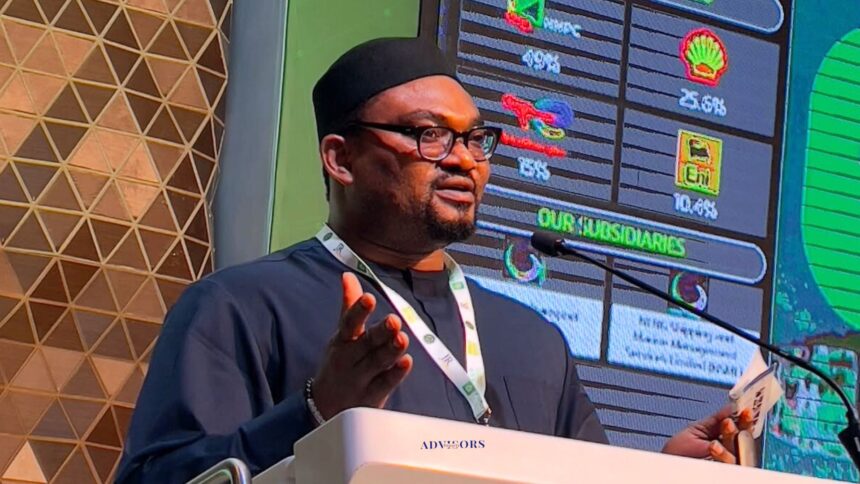“There is demand for skills, services in greenhouse gas (GHG) accounting, flare gas capture” – NLNG Head of Energy Transition
Oredola Adeola
Nigeria LNG Limited has called on the Federal Government to provide clear guidance on carbon regulations amid the global shift toward decarbonization.
The company emphasized that such regulations are key to unlocking new technical and commercial opportunities for Nigerian vendors in the evolving energy transition landscape.
Ayogu Ugochukwu, Head of Energy Transition (Non-Technical) at Nigeria LNG, made this known during his presentation at the 2025 Nigerian Oil and Gas Opportunity Fair (NOGOF), which concluded on Thursday in Bayelsa.
Outlining key opportunities for Nigerian content in the evolving energy transition landscape, Ayogu, emphasized that the energy transition presents abundant prospects for local participation.
He noted that the global shift toward decarbonization is opening up new technical and commercial roles for Nigerian vendors across various sectors.
Ayogu also highlighted the pivotal role of the Nigerian Content Development and Monitoring Board (NCDMB) in advancing policy advocacy, implementing capacity development initiatives, and coordinating industry efforts to drive sustainable growth.
He further affirmed that Nigerian vendors can actively participate across the entire energy value chain—from upstream gas supply to LNG shipping—by offering services in areas such as Monitoring, Reporting and Verification (MRV), the Oil and Gas Methane Partnership (OGMP), Carbon Capture, Utilization and Storage (CCUS), renewable energy, and other low-carbon operations.
According to him, there is a growing demand for skills and services in greenhouse gas (GHG) accounting, flare gas capture, leak detection, clean energy solutions, and Environmental, Social, and Governance (ESG) compliance.
Speaking on Nigeria’s emerging carbon market, Ayogu referenced Article 6 of the Paris Agreement, stating that local businesses may soon be able to generate revenue through the sale of verified emissions reductions.
He invited credible and innovative Nigerian companies to partner with Nigeria LNG in co-developing sustainable energy solutions that will deliver long-term impact.
“The time to act is now,” he said, stressing that building indigenous capacity today will define Nigeria’s position as a leader in Africa’s energy transition tomorrow.




